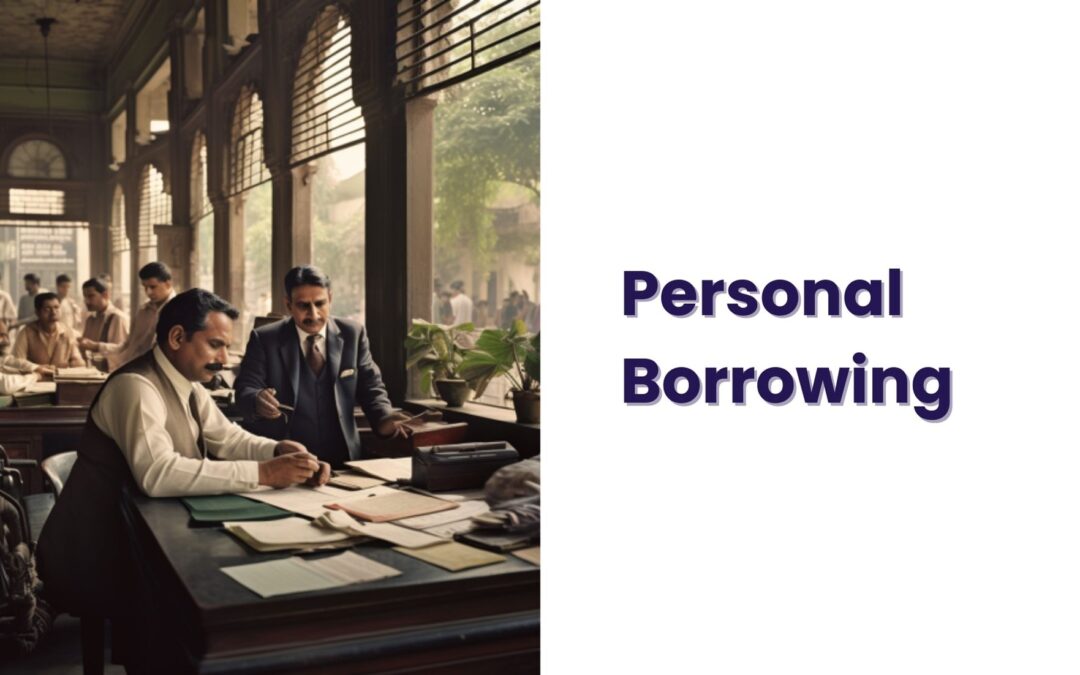Personal borrowing is a financial tool that many individuals leverage to meet various needs and goals. Whether it’s purchasing a home, funding education, or covering unexpected expenses, understanding the intricacies of personal borrowing is crucial for making informed financial decisions.
Do you want to start your saving journey? Download the Jar app and start saving today in 24k digital gold!
Types of Personal Borrowing
In the vast landscape of personal borrowing, individuals encounter various options, each with its own set of advantages and drawbacks. Credit cards, personal loans, and mortgages are among the most common types, each serving distinct purposes. It’s essential to delve into the specifics of each option before making a choice.
Assessing Your Financial Situation
Before diving into the borrowing process, taking stock of one’s financial health is paramount. Factors such as income stability, existing debt, and future financial goals should be carefully evaluated. This initial step sets the stage for a well-informed borrowing journey.
Choosing the Right Type of Loan
Selecting the appropriate type of loan involves aligning the loan’s purpose with one’s specific needs. Understanding interest rates and terms is crucial to avoid unnecessary financial strain. A well-matched loan can be a valuable asset, facilitating financial goals without undue burden.
Building a Good Credit Score
A good credit score opens doors to favorable borrowing terms. It’s not just a number; it’s a reflection of one’s creditworthiness. Tips for improving and maintaining a positive credit score should be an integral part of any borrowing strategy.
Responsible Borrowing Habits
While borrowing can be a powerful tool, responsible habits are the cornerstone of a healthy financial life. Guidelines for responsible borrowing, such as borrowing only what is needed and making timely payments, help avoid common pitfalls.
Impact of Personal Borrowing on Financial Goals
Understanding how personal borrowing fits into long-term financial goals is crucial. While it can be a catalyst for achieving milestones, it should be balanced with saving and investing to ensure a holistic financial strategy.
Dealing with Debt
Debt management is an essential skill in the realm of personal finance. Strategies like budgeting and prioritizing high-interest debt contribute to effective debt reduction and financial stability.
Planning for Repayment
Creating a realistic and actionable repayment plan is key to successful borrowing. Timely payments not only prevent additional costs but also contribute to an improved credit history.
Understanding Interest Rates
Interest rates play a pivotal role in the overall cost of borrowing. Different types of interest rates, such as fixed and variable, should be understood to make informed borrowing decisions.
Hidden Costs of Borrowing
Beyond interest rates, borrowers should be aware of hidden fees and charges. These can significantly impact the total cost of borrowing and should be factored into financial planning.
Impact of Economic Conditions
Economic conditions influence borrowing terms. Being aware of economic trends and adjusting borrowing strategies accordingly enhances financial resilience.
Alternatives to Traditional Borrowing
Exploring alternative financing options, such as peer-to-peer lending or crowdfunding, provides a broader perspective on borrowing possibilities. Knowing when to consider non-traditional forms of borrowing is a strategic financial skill.
Future Trends in Personal Borrowing
As technology continues to shape the financial landscape, emerging trends in personal borrowing become apparent. Staying informed about advancements and their potential impact allows borrowers to adapt to changing conditions.
Conclusion
In the realm of personal borrowing, knowledge is power. By understanding the nuances of different borrowing options, cultivating responsible habits, and staying attuned to economic trends, individuals can navigate their financial journey with confidence. It’s not just about borrowing—it’s about strategically using financial tools to achieve broader life goals.
Frequently Asked Questions (FAQs)
1. Is personal borrowing always a bad financial move?
- No, personal borrowing is not inherently bad. When used responsibly and for specific purposes like buying a home, funding education, or covering emergencies, it can be a strategic financial move. The key is to borrow wisely, considering your financial situation and having a clear repayment plan.
2. How can I improve my credit score?
- Improving your credit score involves several key practices:
- Make timely payments on existing debts, including credit cards and loans.
- Use credit responsibly by not maxing out your credit limits.
- Regularly check your credit report for errors and dispute any inaccuracies.
- Keep a mix of different types of credit, such as credit cards and installment loans.
- Avoid opening multiple new credit accounts within a short period.
3. Are there alternatives to traditional loans?
- Yes, there are alternative financing options beyond traditional loans. Some alternatives include:
- Peer-to-Peer Lending: Borrow directly from individuals through online platforms.
- Crowdfunding: Raise funds from a large number of people, often through online platforms.
- Family and Friends: Consider borrowing from or seeking financial assistance from family or friends.
- Credit Unions: These may offer more personalized and affordable loan options compared to traditional banks.
4. What should I consider before taking out a loan?
- Before taking out a loan, it’s crucial to consider the following:
- Assess Your Financial Situation: Understand your income, expenses, and overall financial health.
- Terms of the Loan: Read and comprehend the terms and conditions, including interest rates and repayment terms.
- Repayment Plan: Have a clear and realistic plan for repaying the loan, considering your budget.
- Hidden Costs: Be aware of any hidden fees or charges associated with the loan.
5. How do economic conditions impact personal borrowing?
- Economic conditions can significantly influence personal borrowing:
- Interest Rates: Economic changes can lead to fluctuations in interest rates. During economic downturns, interest rates may decrease, making borrowing more affordable.
- Credit Availability: Economic uncertainty can affect the availability of credit. Lenders may become more conservative, making it harder to obtain loans.
- Job Security: Economic downturns can impact job security, affecting one’s ability to repay loans. It’s important to consider your financial stability in uncertain economic climates.

